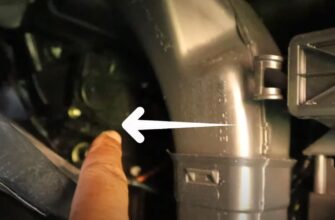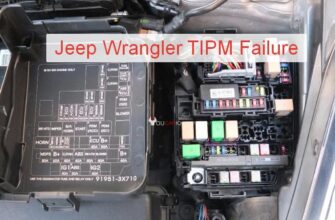The immobilizer system is a critical security feature in Jeep Grand Cherokees that prevents unauthorized vehicle start-ups. When functioning correctly, it ensures that only programmed keys can start the vehicle. However, like any complex electronic system, it can sometimes malfunction, leaving owners frustrated and stranded.
What is an Immobilizer and Why Does It Cause Problems?
An immobilizer is an electronic security device fitted to modern vehicles that prevents the engine from running without the correct key. In Jeep Grand Cherokees, this system uses a transponder chip in the key that communicates with the vehicle’s computer. When issues arise, the vehicle may:
- Refuse to start
- Crank but not turn over
- Start briefly and then shut down
- Display persistent security system warnings
One Jeep owner shared a typical experience: “I purchased a second-hand PCM, and now it starts perfectly for 2 seconds then shuts down. I think it may be the engine immobilizer shutting the engine down.”
Comprehensive Immobilizer Reset Methods
Navigating the complexities of a Jeep Grand Cherokee’s immobilizer system can be challenging for many vehicle owners. The immobilizer is a sophisticated anti-theft mechanism designed to prevent unauthorized vehicle access, but it can sometimes create unexpected complications for legitimate owners. Understanding the underlying technology and common failure points is crucial to successfully resetting the system.
Method 1: Key Fob and Door Lock Reset Procedure
Standard Reset Technique:
- Insert the key into the driver’s side door lock
- Turn the key twice to unlock
- Verify the security light stops flashing
- Attempt to start the vehicle
Pro Tip: The Vehicle Theft Security System (VTSS) can be disarmed by:
- Unlocking the vehicle with the key in the front door lock cylinder
- Using the Remote Keyless Entry (RKE) transmitters
John, a 2010 Jeep Grand Cherokee owner, shared his frustrating experience: “I spent almost a week following advice from various Jeep owners on how to reset the Immobilizer/Anti-Theft lock-out. None of them worked initially.”
Method 2: Battery Disconnection Reset
Modern automotive security systems represent a complex intersection of electrical engineering and computer technology. The Jeep Grand Cherokee’s immobilizer is more than just a simple lock mechanism – it’s an intelligent system that communicates between the key, vehicle computer, and various electronic components. When this delicate communication breaks down, it requires a methodical and informed approach to diagnosis and resolution.
Emergency Reset Process:
- Disconnect the negative battery cable
- Wait 10-15 minutes
- Reconnect the battery
- Attempt to start with the original key
Mark, who owns a 2015 Jeep Renegade, discovered an alternative solution: “On the advice of an automobile locksmith who generously spent half an hour helping me, I purchased a code scanner tool for $150, which ultimately solved my immobilizer problem.”
Advanced Diagnostic Techniques
Modern automotive security systems represent a complex intersection of electrical engineering and computer technology. The Jeep Grand Cherokee’s immobilizer is more than just a simple lock mechanism – it’s an intelligent system that communicates between the key, vehicle computer, and various electronic components. When this delicate communication breaks down, it requires a methodical and informed approach to diagnosis and resolution.
Electronic Control Unit (ECU) Reset Procedure
Detailed ECU Reset Steps:
- Disconnect the positive battery cable
- Ground the positive cable to the negative cable for 30 seconds
- Reconnect the positive cable
- Turn the key to the “ON” position (do not start)
- Turn headlights on, then off
- Turn the key off
Important Note: After reset, the ECU will take approximately 50 warm-up periods to re-learn your vehicle’s driving characteristics.
Troubleshooting Persistent Immobilizer Issues
Immobilizer problems rarely occur in isolation. They are often symptomatic of broader electrical or mechanical issues within the vehicle. Owners frequently encounter these challenges after key replacements, battery changes, or when purchasing a used vehicle. Understanding the root causes and developing a systematic approach to troubleshooting can save significant time, money, and frustration in resolving these complex security system challenges.
Potential Causes of Immobilizer Failure
- Damaged key transponder
- Faulty PCM (Powertrain Control Module)
- Wiring issues
- Battery problems
- Damaged key fob
Professional Diagnostic Recommendations
- Perform a comprehensive battery load test
- Check key fob battery
- Verify key programming
- Use an OBD2 scanner to read security system codes
Cost Considerations for Immobilizer Repairs
Repair options and estimated costs:
- DIY reset: Free
- Key reprogramming: $50-$150
- PCM replacement: $300-$600
- Dealer diagnostic and full repair: $500-$1000
Prevention and Maintenance Tips
- Maintain key fob batteries
- Avoid physical key damage
- Keep spare programmed keys
- Perform regular system diagnostics
- Store keys away from electronic devices
Final Thoughts
While immobilizer issues can be complex, most problems can be resolved through systematic troubleshooting. Always start with the simplest solutions and progress to more advanced diagnostic techniques.Warning: Persistent immobilizer problems may indicate deeper electrical or security system issues. When in doubt, consult a professional Jeep technician to prevent potential long-term damage to your vehicle’s complex electronic systems.








